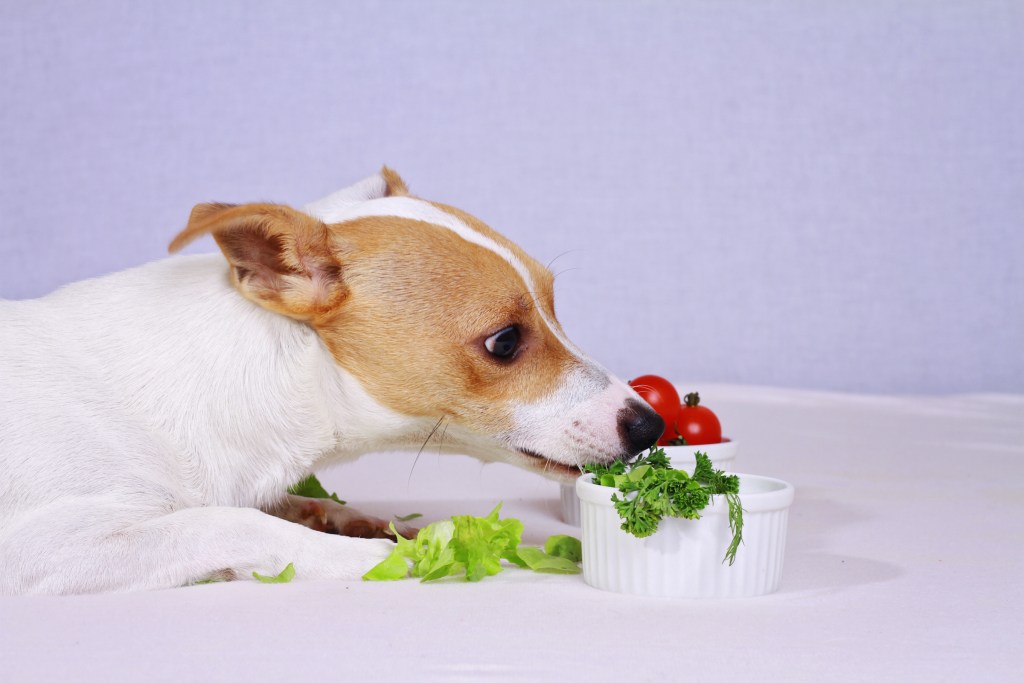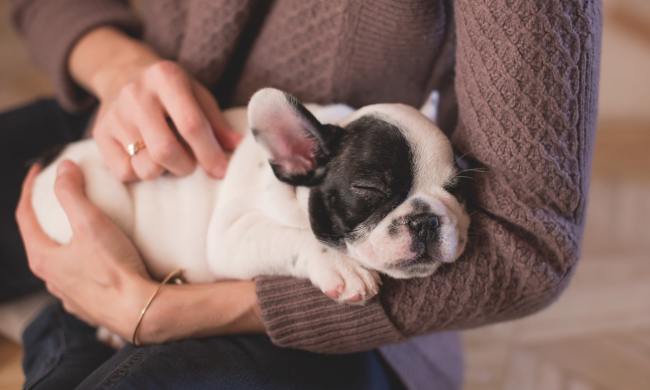Whether you feed your dog a homemade diet or you’d just like to incorporate a new treat, a vegetable is never a bad place to start. They’re full of vitamins and nutrients to keep your furry friend fit and happy, and they’re easy to prepare, too.
If you’ve found yourself asking the internet what veggies are good for dogs, you’ll be pleasantly surprised at the multitude of answers. So many vegetables, from leafy greens to squash and everything in between, are not only safe for dogs but nutritious besides!
These are the best healthy veggies for dogs:
1. Carrots
Aside from delivering a fun and satisfying crunch, carrots are great for your dog’s body and teeth. Vitamin A, potassium, fiber, and beta carotene —which is a great immune supporter for canines — are just a few of this veggie’s nutritional perks. They’re also low in calories, which makes them the perfect snack! You can even try freezing them for an extra-long-lasting chew toy.
2. Pumpkin
This fall-time favorite is popular among dogs for its delicious taste, though you’ll love the healthy benefits your pup is getting from this food. Surprisingly, pumpkin is an excellent source of iron, in addition to vitamins A, E, and C (via American Kennel Club).
The fiber in this vegetable can even help pups with diarrhea and other digestive issues. Dogs will eat pumpkin prepared just about any way, though some have a harder time digesting it raw. Just make sure to avoid artificial sweeteners that can be found in some canned pumpkin.
3. Celery
Like carrots, celery is a safe and healthy crunchy treat that benefits your dog’s dental hygiene, too. It even freshens breath, according to the American Kennel Club (AKC), which is a perk many pet parents would die for.
Celery makes a great snack for dogs for the same reasons it’s good for people: low calories, fat, and cholesterol. Vitamins like A, C, and K, as well as nutrients like folate, potassium, and manganese, are all beneficial to your pup’s diet.
4. Green beans
Whether you serve these veggies fresh, canned, raw, steamed, or even pureed, green beans are a healthy addition to any canine’s snack — or mealtime. The AKC notes that you should be extra careful to avoid the additives that green beans are often prepared with, such as:
- Salt
- Oils
- Spices
- Garlic
- Onions
These veggies are also chock-full of vitamins and minerals — think protein, calcium, vitamin B6, and the like — that contribute to a healthy, balanced canine dinner.
6. Butternut squash
As similar as butternut squash is to pumpkin, they aren’t quite the same. The skin and seeds of this gourd should not be fed to your dog (all parts of the pumpkin are OK), and the flesh should be cooked. You don’t have to scorch it, though; a quick steam or some time in the oven will be fine.
Vitamins A and C help support a healthy immune system, bones, vision, and more, while potassium, a vital electrolyte, keeps your pup’s heart pumping strong.
7. Sweet potatoes
This popular dog food is stuffed with all kinds of healthy nutrients, but it should be prepared carefully. Raw sweet potato isn’t easily digestible, so your yam should be peeled, cooked, and served — ideally — at a soft, mushy texture (via AKC). Remember to feed in moderation; they are called sweet potatoes after all.
With nutritional helpers such as calcium, potassium, iron, and some vitamins (A, B6, and C, specifically), this starch is another whole-body treat. The best part? Your dog will find it so yummy, he won’t even think about health benefits!

8. Corn
While many dogs enjoy corn on a regular basis (it can even be found in dog food), not all dogs do well with this vegetable. In fact, some dogs can even be allergic, so you should double-check or proceed with caution if you’re unsure.
This grain is a popular ingredient for pups because it’s loaded with nutrients: protein, carbohydrates, fat, fiber, vitamins, antioxidants, and linoleic acid, just to name a few.
While cooked corn is a great treat for your dog, don’t risk his health by giving him corn on the cob. Not only can he choke, but the cob also could cause intestinal blockage.
9. Cucumber
They’re not just for spa days! These crunchy veggies are perfectly safe to share with your furry friend — as long as they’re in bite-sized pieces, of course. In fact, the American Kennel Club reports that cucumbers are about 96% water, so they’re actually a great way to keep your dog hydrated, too. Since they’re so low in calories, they’re perfect snacks for pups who are watching their weight.
10. Bell peppers
These colorful veggies are packed with nutrients such as lutein and beta-carotene, though the red bell peppers tend to have the highest amounts of vitamins (including C, A, B6, and E) and antioxidants, according to the AKC.
You should help your dog out by steaming and peeling bell peppers before serving them. Make sure to give your pup bell only peppers and not any pepper with heat, as spice can be irritating — even dangerous — for some dogs.
Now that you know what is and isn’t safe for dogs, you won’t have to ignore their desire for a treat. With these 10 veggies on your — and your veterinarian’s — approved list, you’ll be ready to go whenever snacktime rolls around.




